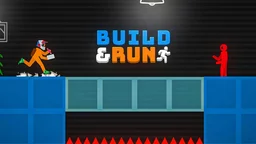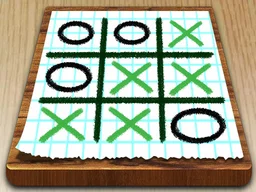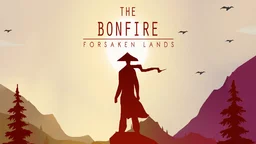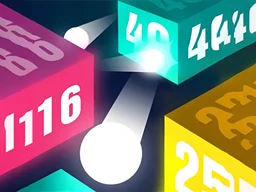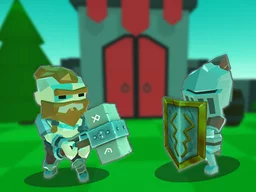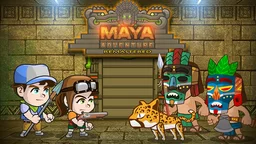ancient Games Online
 Zone4Game on the desktop
Zone4Game on the desktop
Ancient online games you can play now
Quick answer: Start a match in minutes with faithful, playable versions of classic board games from Mesopotamia, Egypt, Greece, and Rome. Pick a game, learn a few simple moves, and play vs AI or a friend no install needed. These games are still fun, and it's easy jump in.
Quick start
- Royal Game of Ur two‑player race, tactical blocking; 10-20 min.
- Senet Egyptian race game with push‑and‑block tension; 15-30 min.
- XII Scripta (Alea) Roman ancestor of backgammon; 20-30 min.
- Latrunculi (Ludus Latrunculorum) Roman capture/strategy; 15-30 min.
- Pente Grammai (Five Lines) early Greek alignment/race hybrid; 10-15 min.
- Three Men's Morris light abstract, perfect quick duel; 3-5 min.
- Astragaloi knucklebones: throws, mini‑games, chance meets ritual.
Featured games
Royal Game of Ur
Over 4,500 years old. A race game with safe tiles and captures. Popular ruleset is attributed to modern interpretation by Irving Finkel; other variants exist.
Senet
Iconic Egyptian board with movement by casting sticks or knucklebones. Rules are reconstructed from boards and texts; expect variants.
XII Scripta (Alea)
Roman race/bearing game related to modern backgammon. Tracks and dice counts vary across periods; multiple rule reconstructions.
Latrunculi
Abstract strategy with captures and blocking, sometimes compared to tafl‑like play. Board sizes and tactics change with the ruleset.
Pente Grammai (Five Lines)
Early Greek game with line‑based movement; later square boards appear in Roman times. Short, tactical, great as a first step.
Three Men's Morris
Simple and exact rules survive. Place, align, and win. Ideal for a fast warm‑up match.
How we reconstruct the rules
Rules come from archaeological boards, cuneiform tablets, and literary notes. Exact ancient play often varied by region and time. We label each game's rules as "known", "partial", or "varies" and provide popular rulesets (e.g., Finkel or Masters) so you can choose. Dont worry you can start with easy mode.
Compare at a glance
| Game | Culture/era | Type | Pieces/Dice | Luck vs Skill | Typical length | Rules certainty | Online play |
|---|---|---|---|---|---|---|---|
| Royal Game of Ur | Mesopotamia | Race, capture | 5-7 per side; 3-4 binary dice | Mixed | 10-20 min | Varies (Finkel common) | AI / Friends |
| Senet | Egypt | Race, block | 5-7 per side; sticks/knucklebones | Mixed | 15-30 min | Partial | AI / Friends |
| XII Scripta (Alea) | Rome | Race/bearing | 15 per side; 2-3 dice (var.) | Mixed | 20-30 min | Varies | AI / Friends |
| Latrunculi | Rome | Abstract, capture | Grid; no dice | Skill | 15-30 min | Partial | AI / Friends |
| Pente Grammai | Greece | Alignment/race | 5 per side; dice (var.) | Mixed | 10-15 min | Partial | AI / Friends |
| Three Men's Morris | Rome | Abstract, align | 3 per side; no dice | Skill | 3-5 min | Known | AI / Friends |
| Astragaloi | Greece/Rome | Dice/knucklebones | Knucklebones; throw tables | Luck | 1-5 min | Varies | Solo / Friends |
Play modes and platforms
- Play vs computer (easy/normal/hard) or challenge friends.
- Works in modern desktop and mobile browsers.
- Tutorials, move hints, and rule tooltips help you learn fast.
- Optional print‑and‑play boards and PDF rules for tabletop sessions.
FAQ
Are these the exact ancient rules?
No. Some are reconstructed from evidence; we note the certainty and offer popular variants.
Can I play without creating an account?
Yes, you can try quick matches. Sign in later to save stats and progress.
Is there an AI opponent?
Yes. Most games include AI with selectable difficulty.
What devices are supported?
Modern browsers on desktop and mobile. Performance depends on your device.
How long is a typical match?
From 3-5 minutes (Three Men's Morris) to about 30 minutes (XII Scripta), depending on the game and ruleset.
Where do the rules come from?
From boards, texts, and modern scholarship (e.g., work by Sir Leonard Woolley, Irving Finkel), consolidated into clear variants.
Ready to play?
Choose a classic above and start a match now. Sign in any time to track ratings and unlock variants.


